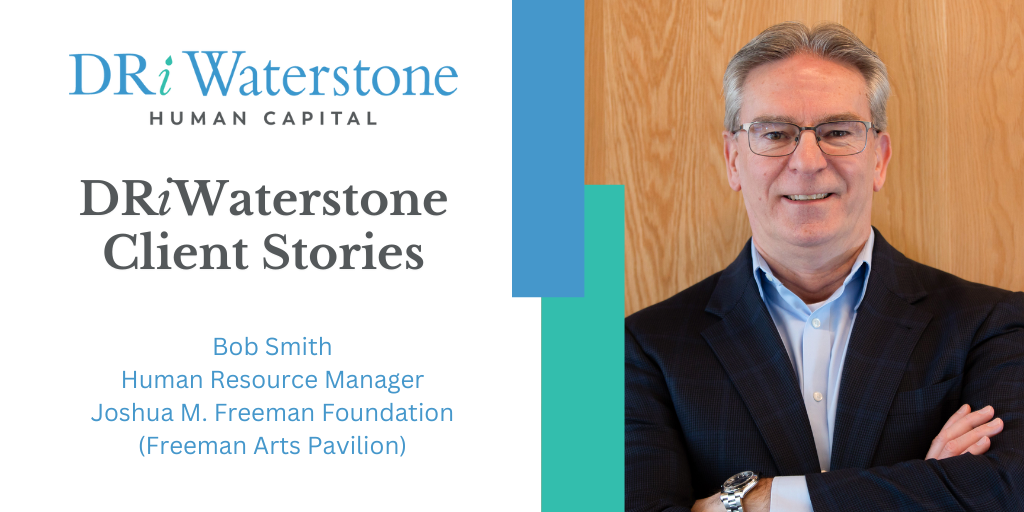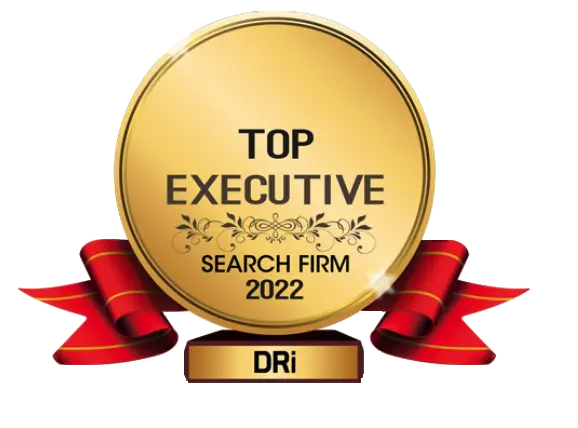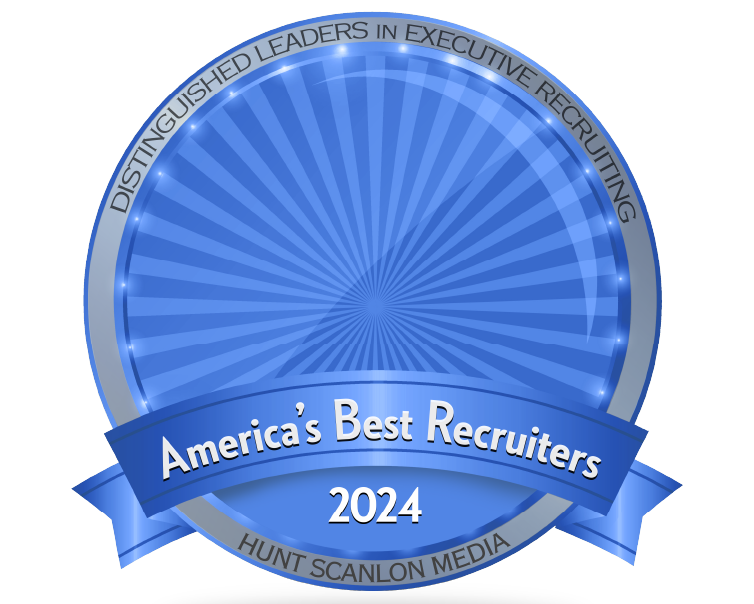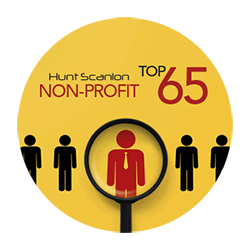
We recently sat down with Bob Smith, the Human Resources Manager at the Joshua M. Freeman Foundation (Freeman Arts Pavilion) to discuss his experience working with the DRiWaterstone Human Capital team for an incoming Deputy Director. In this Q&A session, Bob shares more about the organization, their goals, and the impact this position will have in making the mission of the Joshua M. Freeman Foundation a reality, among other key points.
—
DRiWaterstone (DRiW): Can you tell me a little about the Joshua M. Freeman Foundation and the Freeman Arts Pavillion?
Bob Smith (BS): I am the Human Resource Manager for the Joshua Freeman Foundation. We are a non–profit located in Selbyville, Delaware. We’ve been around for 16 years. We were established back in 2007 to honor the memory of Joshua M. Freeman, who was the CEO and President of the Carl M. Freeman Company’s real estate development firm out of the DC area. He died tragically and unexpectedly in a helicopter accident, and his family created this foundation to honor his memory and commitment to arts and education.
One of our main programs for the foundation is an outdoor performing arts venue in Selbyville, Freeman Arts Pavilion. We’re a hidden gem on Delmarva; most people have not heard of us, but we seat about 3,600 people. We have had iconic artists here, from Patti LaBelle to Diana Ross to Darius Rucker to local tribute bands and the local ballet. We put on about 70 performances a season in the summer, and around 30% of performances are free to the public as part of our mission.
DRiW: Can you share recent success stories or milestones with your org?
BS: We have a volunteer corps that usually averages between 275 and 300 volunteers a year, and last year, our volunteers received the Governor’s Outstanding Volunteer Award for the state of Delaware. So that was very exciting for us.
Also, Arts Education, part of our Arts Access Initiative, is one of the main programs we focus on when the summer season is over. We provide arts education to schools in Delaware and Maryland. This past school year, nearly 25,000 students had access to free arts programming. One of the programs that we offered was a musical performance of The Magic School. It was the first time since COVID began that we could put on live performances at our venue for students to take a field trip to enjoy. The students saw a live, educational musical performance led by Miss Frizzle, and it was amazing to watch them sit in their seats for an hour and not move and be mesmerized by it.
DRiW: Can you tell me a little about the recent role the Joshua M. Freeman Foundation was looking to fill?
BS: Coming out of COVID-19, as part of our growth plan over the next five years, we went from 10 people on staff year-round to 23. We’ve grown from a $4 million foundation to a $10 million foundation. That growth really sped up the need for a Deputy Director position. Our Executive Director had too many direct reports. It was stretching her, so it was decided that we needed a second person to take over some departments. It was planned for, and a need, based on our strategic plan.
DRiW: What impact will this role have on your ability to achieve the Joshua M. Freeman Foundation’s mission?
That’s a great question. It is tied directly to our strategic plan, the goal for this position, and the growth we want over the next five years. We’re embarking on a project to expand and fortify the Freeman Arts Pavillion for long-term success. This position will be key because some departments report to the Deputy Director, who will oversee some of those projects. It allows us to have someone dedicated to the Freeman Arts Pavilion in a way we hadn’t before because of limited staff.
DRiW: Can you describe your overall experience working with the DRiWaterstone team?
We had a great relationship. They were very accommodating in meeting with us. We didn’t want to talk only over the phone or via Zoom, but we wanted to meet with them and visit us so they could understand what we do and get a little insight into the culture of our foundation. So, they were very accommodating on that in that aspect. They were very good partners in helping us try to fill the position with someone who had arts experience or venue management experience—that was our original goal—and we ended up shifting away from that a little bit, which was our choice to broaden the pool of applicants.
BS: What advice do you have for nonprofits looking to hire an executive in today’s market?
It comes down to resources. When you go out to an executive search firm, the fee is much higher to fill that role. You can structure that fee in several different ways when you’re working with an executive search firm, but there is going to be a fee. If a nonprofit is looking to fill an executive role, and they don’t have the resources, or they’re too small, they will need some help with that. I’ve worked with executive search firms in the past in executive roles or upper-level management roles. It works well because those organizations have access to recruiting systems—the big one right now is LinkedIn recruiting. For a small nonprofit, that can be very expensive, so you’re limited to posting jobs on platforms like Indeed.com, but you’re not necessarily getting the quality of candidate you may want in an executive position. That’s where using an executive search firm can help.
—
At DRiWaterstone, we have the pleasure to work with some of the best mission and purpose-driven clients and candidates in the non-profit and social impact space. To learn more about how we can help you build your high-performance teams and drive growth, email us – we would love to talk!






